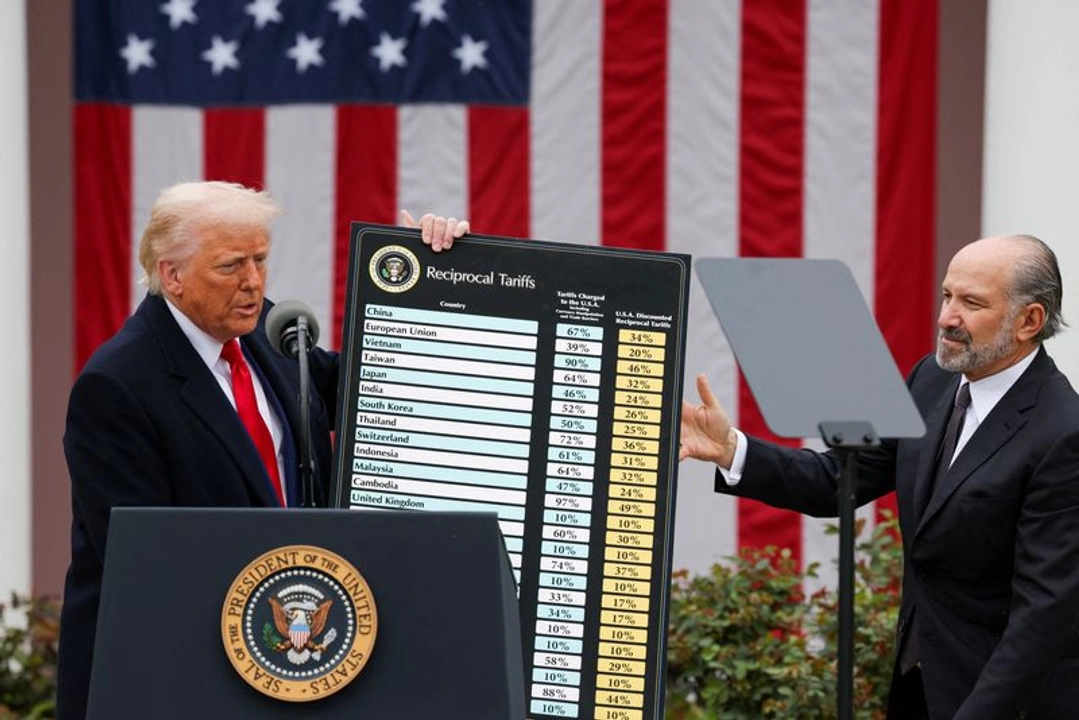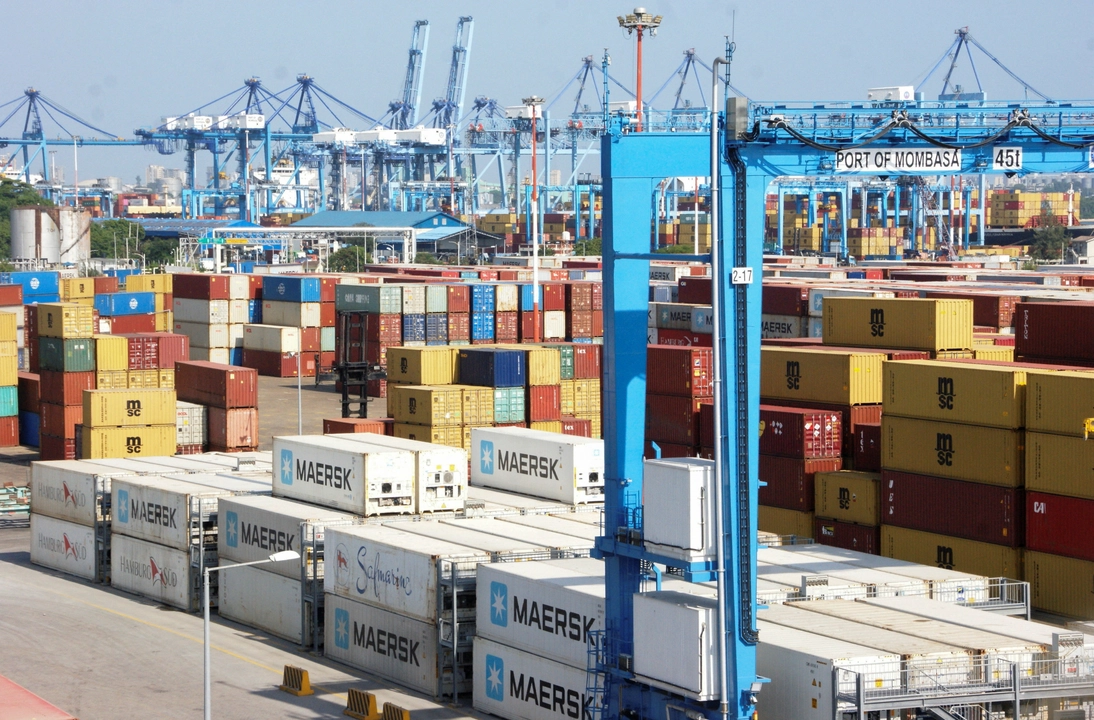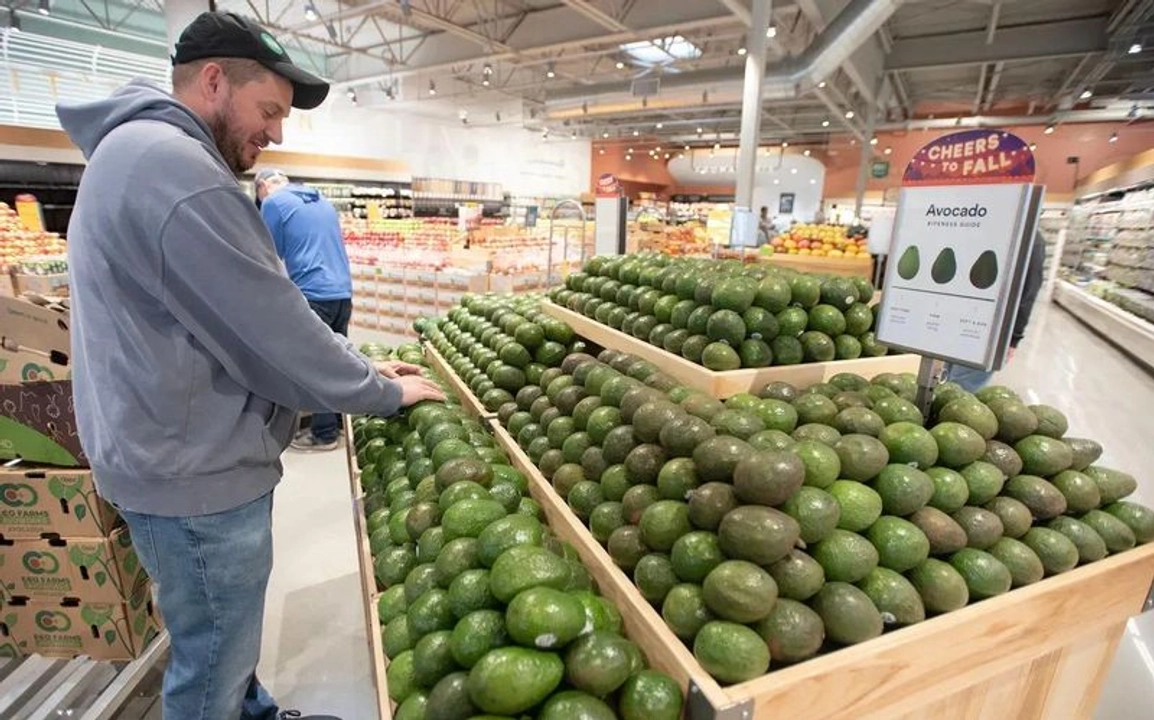Sport
Dollar
38,0806
0.09 %Euro
42,9728
-0.62 %Gram Gold
3.950,3900
0.6 %Quarter Gold
6.511,6500
0.65 %Silver
39,5800
-0.01 %Trump’s tariffs on China, along with China’s retaliatory measures, have triggered ripple effects that are likely to influence Africa’s trade, investment, and broader economic development.
By Shuaib Mahomed
Since former President Donald Trump took office in 2025, one of his most controversial economic policies is his aggressive use of tariffs.
Framed as a traditional tool to protect industries and correct trade imbalances however, Trump’s tariffs—particularly on Chinese goods—has sparked a global trade war whose effects reach far beyond the U.S. and its major trading partners including the emerging markets in Africa.
At first glance, it may seem that a dispute between the U.S. and China has little to do with Africa. But in today’s globalised economy, geopolitical risks - such as trade policies, have the ability to cause volatility spillovers across continents.
Trump’s tariffs on China, along with China’s retaliatory measures, have triggered ripple effects that are likely to influence Africa’s trade, investment, and broader economic development.
As a result, the continent may be forced to navigate a complex landscape marked by both potential opportunities and significant challenges.
Supply Chain Shifts
In the past, one of the clearest consequences of Trump’s tariffs was the reshuffling of global supply chains.
As U.S. companies sought to reduce dependence on Chinese suppliers, many began looking elsewhere—including to Africa.
Countries like Ethiopia, Kenya, and Ghana were seen as potential new hubs for textile and light manufacturing, thanks to low labor costs and access to duty-free U.S. markets through the African Growth and Opportunity Act (AGOA).
If tariffs on China intensify, African nations could once again be poised to benefit.
Multinational corporations, wary of geopolitical risks in Asia, might inject investment in African manufacturing to hedge against future trade shocks.
This could create jobs, foster skills development, and spur infrastructure investment.
But this optimistic scenario rests on a fragile foundation.
Africa still struggles with inconsistent power supply, limited transportation networks, and bureaucratic red tape that can undermine investor confidence.
Without strategic investment in logistics and governance, Africa risks missing out on this opportunity.
Agricultural exports
Africa plays a crucial role in the global supply of raw materials and agricultural commodities— sectors that are particularly sensitive to fluctuations in international trade dynamics.
During the previous U.S.-China trade war under the Trump administration, China responded to American tariffs by seeking alternative suppliers for key agricultural products such as soybeans and palm oil.
This shift temporarily created new export opportunities for African producers.

However, trade conflicts tend to generate significant market volatility.
Should a renewed imposition of tariffs by the U.S. trigger another cycle of retaliatory measures, African exporters may find themselves adversely affected.
A sudden decline in Chinese demand, increased price instability, or an influx of competitively priced U.S. agricultural products redirected to third markets could undermine local industries and erode the competitiveness of African exports.
Furthermore, the Trump administration’s transactional and often unilateral approach to foreign policy may pose additional challenges.
African nations with strong economic ties to China— currently the continent’s largest bilateral trading partner—could face indirect diplomatic or economic pressure from the United States.
This may threaten preferential trade arrangements such as AGOA, thereby complicating Africa’s position within the global trade system.
Impact on African Economies
President Trump's recent 90-day pause on tariffs has temporarily eased volatility in financial markets over the last few days.
However, a critical question remains: what would be the economic impact on African economies if these tariffs are reinstated?
In 2024, Sub-Saharan Africa’s exports to the United States were valued at approximately $20.8 billion, accounting for 5.24% of the region’s total exports.
The resumption of tariffs targeting African emerging markets would likely lead to a decline in demand for African goods.

This, in turn, would reduce export earnings, particularly for farmers and producers, and diminish investment across key sectors such as agriculture, raw materials, and manufacturing.
Such a downturn would inevitably result in a contraction of GDP.
This outcome is particularly concerning given that many African economies operate with high debt-to-GDP ratios.
A decline in GDP would exacerbate these ratios, placing additional upward pressure on borrowing costs and complicating the management of public debt.
Moreover, renewed tariffs could also deter foreign direct investment (FDI).
Investors typically seek stable and profitable export environments; if African exports become subject to higher tariffs, the perceived risk and reduced profitability could drive multinational firms to shift their operations to regions with more favourable market access.
This would hinder economic diversification and constrain job creation in critical sectors such as manufacturing, agribusiness, and renewable energy—sectors that are essential to the continent’s long-term development goals.
Building resilience
In sum, while Trump’s tariff policies are primarily aimed at protecting U.S. economic interests, their global repercussions could significantly impact African economies.
From disrupted trade flows and investment uncertainty to reduced export competitiveness and rising debt pressures, the resumption of tariffs poses a serious risk to Africa’s economic stability and growth prospects.

To navigate these challenges, African nations must strengthen regional integration, diversify trade partnerships, and enhance their value-added production capabilities to build greater resilience in an increasingly uncertain global trade environment.
Comments
No comments Yet
















Comment